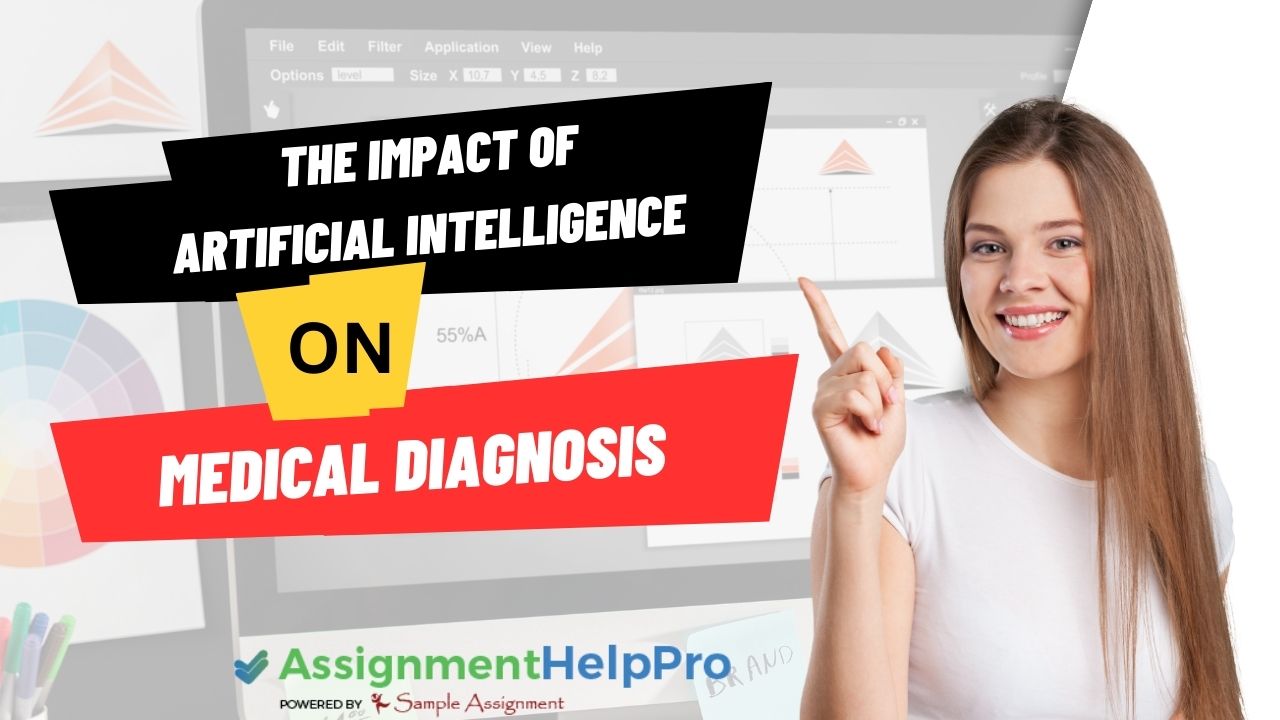AI is crucial in preventative medicine and the early diagnosis of disease. Artificial intelligence (AI) powered devices can detect even the most minute changes in a patient’s health status by constantly monitoring information as well as analysing trends warning doctors of potential problems before they manifest as overt symptoms. It can compile data from various sources to give a complete picture of a patient’s health, including electronic medical records, genetic information, as well as real-time monitoring. This in-depth evaluation can help doctors better assess their patient’s medical conditions and provide individualized treatment regimens that will have the greatest impact on their health. Now let’s check about this topic in detail below:
Proactive Healthcare and Early Detection
In the case of chronic diseases like diabetes as well as heart disorders, where prompt treatment might reduce the need for hospitalization due to complications, a system for warning signs is invaluable.
Artificial intelligence systems can examine medical imaging as well as biomarker data for early tumor detection in cancer diagnosis. This early identification greatly improves the likelihood of effective treatment as well as long-term survival. Additionally, individuals can be stratified according to their vulnerability to certain diseases using AI-driven risk prediction models, enabling more specific screening and preventative steps to be taken. By reducing the frequency with which expensive treatments, as well as hospital stays, are required, this preventative method of healthcare not only enhances patient results but also lowers healthcare expenditures.
Improvements in Productivity and Workflow
AI has the ability to improve healthcare workflows, which would ease the job of healthcare workers and make healthcare systems more effective as a whole. Algorithms based on natural language processing (NLP) can glean useful information from doctors’ notes and other medical documents, reducing the time doctors need to spend on paperwork so they can spend a longer period with patients. Virtual assistants, as well as chatbots powered by artificial intelligence, can undertake mundane chores like answering patient questions, making appointments, and following up on them.
Artificial intelligence can be used as a “second opinion” in radiology by first screening diagnostic images for anomalies and then ranking the most pressing instances. This not only shortens the time it takes to make a diagnosis, but it additionally assists radiologists in sharing the load. Hospitals may better prepare for spikes in demand by using predictive analytics driven by AI to estimate patient admissions as well as allocate resources accordingly.
Ethics and Legislation Issues
There are serious ethical and regulatory questions that arise from the expanding role of AI in medical evaluation. Since the application of AI entails the processing of personally identifiable medical data, privacy and security of patient data are of the utmost importance. Protecting patient privacy requires strict adherence to data protection standards and strong online security.
The possibility of prejudice in AI algorithms is another matter of ethics to think about. A variety of demographics may receive different diagnoses and treatments if the data utilized to train the algorithms is not representative or varied. It is a continuing problem for medical facilities and regulatory agencies to address bias in AI algorithms and guarantee fair healthcare outcomes.
It is also important to have well-defined regulatory standards and frameworks in place before implementing AI in healthcare. To avoid causing patients any unnecessary harm, it is essential to ensure the reliability and accuracy of AI-based diagnostic tools. The Food and Drug Administration, among others, is striving to develop regulations and review procedures for medical technologies that use artificial intelligence.
Customized Health Care for Individual Patients
In order to better serve each individual patient, AI is propelling the development of personalized medicine. Predicting a patient’s response to treatment by analyzing their genetic profile, medical records, and lifestyle factors is now possible with the help of machine learning algorithms. As a result, doctors may provide patients with safer and more effective medication. In addition to better patient results, personalized medicine also decreases the amount of trial-and-error that is often involved in deciding on a course of therapy.
Workflow Optimization and Efficiency
Artificial intelligence (AI) equips medical professionals with insights based on data that can guide clinical decision-making. Artificial intelligence can analyze patient information as well as electronic health records to spot patterns and trends. For instance, AI can aid in the identification of individuals who are at risk for developing certain disorders, allowing doctors to take preventative steps. Keeping an eye on symptoms as well as patient data in real-time it can help public health officials spot illness epidemics sooner and better respond to them.
Telemedicine and Remote Monitoring
The COVID-19 pandemic hastened the widespread use of telemedicine, which AI has shown to be an integral part of this growth. Patients can get round-the-clock treatment without ever leaving their homes with the help of artificial intelligence-powered remote monitoring systems. Artificial intelligence (AI)-enabled wearable gadgets and mobile applications which can monitor vital signs, identify abnormalities, and notify healthcare practitioners of the need for intervention. It not only eases pressure on hospitals but also helps those living in underprivileged areas get the medical attention they need.
Scientistic Drug Development in Medicine
Artificial intelligence is speeding up the search for new medicines. To find new treatments for diseases, machine learning programs can sift through mountains of data from journals, clinical trials, as well as genomic studies. This shortens the drug development process and lowers the overall price of new medicines. In addition, AI can help find biomarkers and possible therapeutic targets, leading to more targeted and effective treatments.
Allocation of Resources and Predictive Upkeep
Healthcare institutions employ AI for things like allocating resources and doing proactive upkeep. Hospitals may make more informed decisions about staffing and resource allocation with the help of machine-learning algorithms that forecast patient admission patterns. In addition, AI may keep an eye out for wear and tear on hospital machinery and plan for repairs before they become catastrophic. This preventative method reduces the amount of time that medical gadgets are unavailable and increases their availability.
Education of the Patient and Engagement
Chatbots as well as virtual assistants powered by artificial intelligence, are improving patient participation and education. These smart devices may have two-way conversations with patients, fielding inquiries about their diagnoses and treatments. In addition, they can serve as helpful reminders for patients to take their medications as prescribed and attend their scheduled follow-up visits. In addition, AI-powered learning platforms can produce individualized health data, giving patients more agency in their healthcare decisions.
From evaluation and therapy to research and patient interaction, artificial intelligence is revolutionizing the healthcare industry. Because of its capacity for data analysis, insight generation, as well as clinical decision-making support, it is causing a sea change in the healthcare sector. With Do My Assignment assistance, learning about the continued development and implementation of AI technology in healthcare systems holds great promise for enhancing treatment quality, boosting patient outcomes, and lowering healthcare costs for people everywhere.
Conclusion
Artificial intelligence has had far-reaching and varied effects on the field of medical diagnostics. Disease diagnosis and management may undergo a dramatic shift as a result of advances in artificial intelligence (AI) that improve accuracy, make early detection possible, streamline workflows, and promote proactive treatment. Assignment Help to ensure the appropriate and equitable incorporation of AI into healthcare, however, we must first address the ethical as well as regulatory problems that have arisen alongside these developments. As AI develops further, it is anticipated to play an increasingly more integral role in medical diagnostics, revolutionizing the healthcare system and enhancing patient outcomes worldwide.
For similar Read : Blogozilla.com



